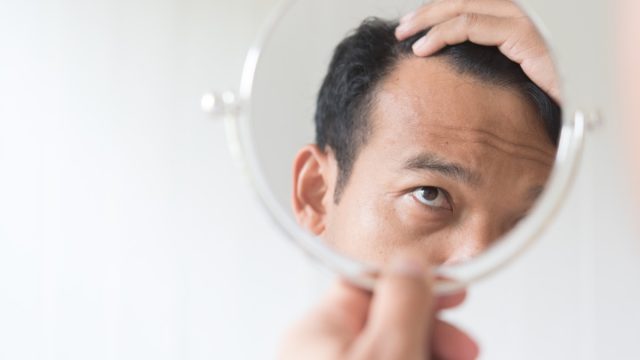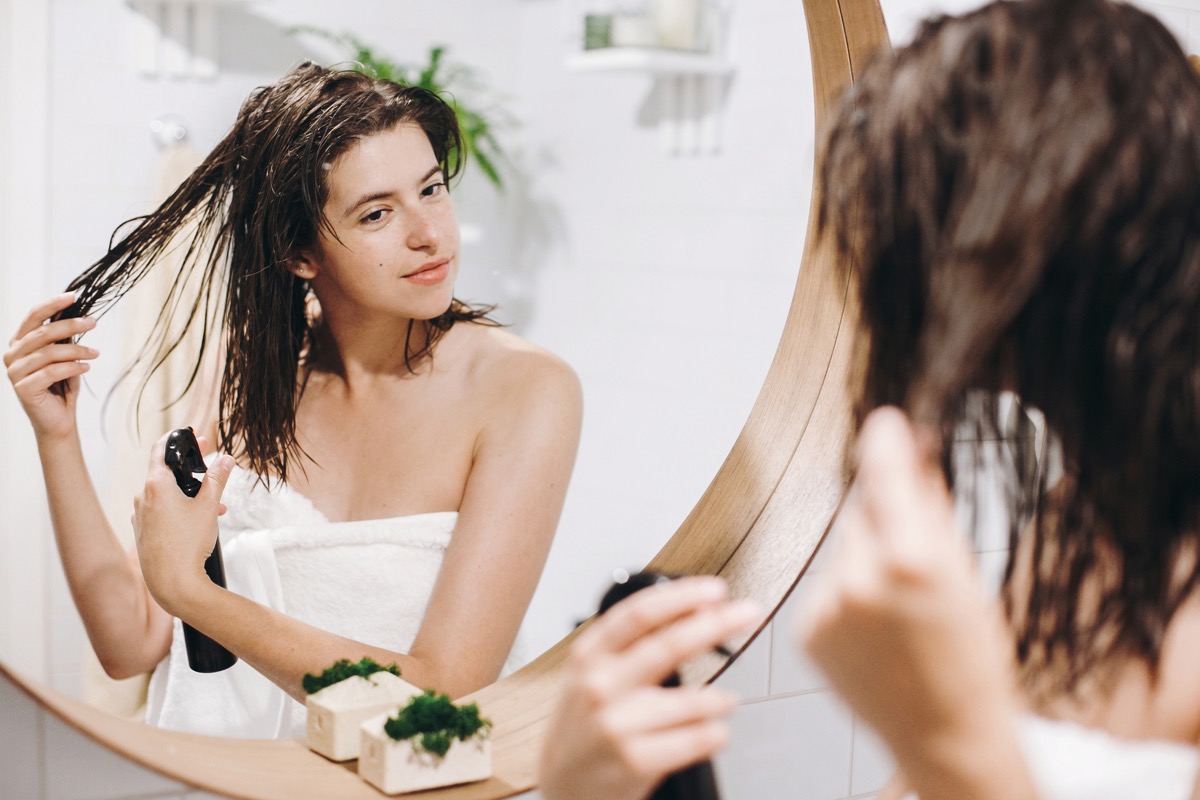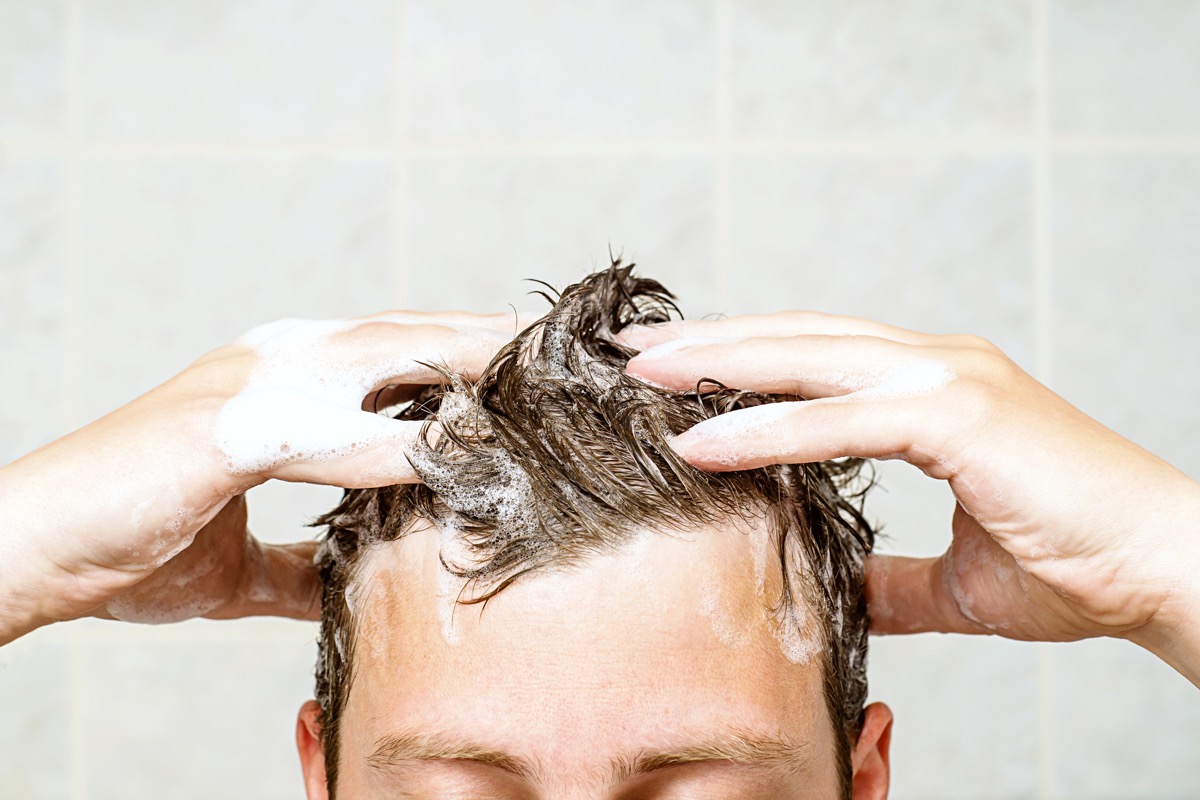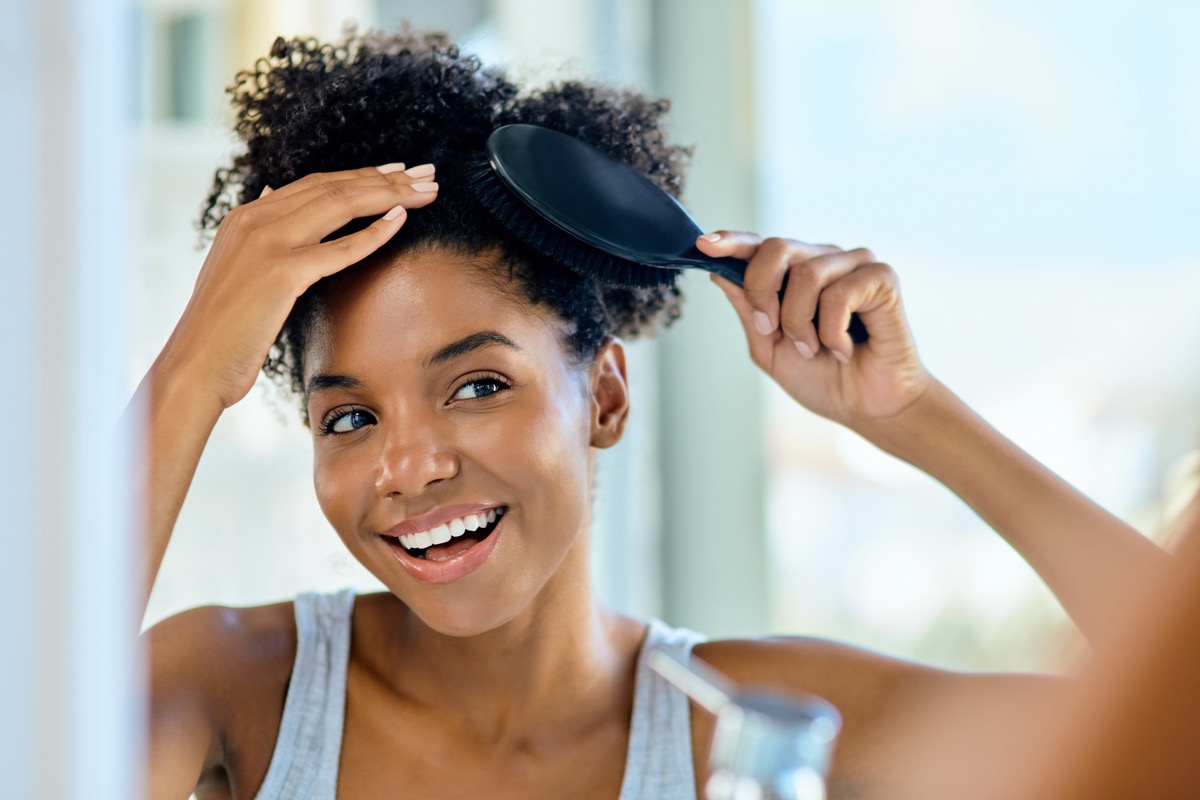This One Bedtime Habit Is Making Your Dandruff Worse, Doctors Warn

If you shower at night, you’ve probably wondered whether going to bed with wet hair is a healthy habit. Sure, the longstanding myth that you’ll catch a cold from sleeping with damp locks has been proven untrue, but many doctors and stylists alike still swear by drying your hair before bed. That’s because experts say it could have an effect on your hair and scalp that’s less than desirable. Beyond the issue of minor hair breakage, doctors say that sleeping with wet hair can trigger the development of yeast on the scalp, which can lead to increased dandruff over time. Read on to find out how you could be causing dandruff, and for more hygiene tips you may not know, here is The One Body Part You Should Never Clean, According to Doctors.
Carol Cheng, MD, assistant clinical professor at the David Geffen School of Medicine at UCLA, recently spoke to Self about going to bed with wet hair. As she explained, when you go to sleep directly after showering, the wetness of your hair combined with the subsequent wetness of your pillow creates an ideal environment for yeast to grow. The moisture and warmth create the perfect breeding ground for the fungus malassezia, which is associated with not only dandruff, but also other skin conditions like seborrheic dermatitis and eczema.
Making matters worse, sleeping on a wet pillow allows bacteria and mold to be in direct contact with your pores. This can trigger a range of other skin conditions on your face and scalp, including acne, ringworm, and scalp inflammation. According to one study that tested pillows for fungal flora, each specimen turned up between four and 16 species of fungus, including aspergillus fumigatus. This particular species is known for triggering severe infections in those with asthma and weakened immune systems.
It’s worth noting that while these conditions can be serious, they’re also somewhat rare. Many people sleep with damp hair nightly and experience no side effects, beyond some extra body and wave to style with. However, if you do notice more of those pesky dandruff flakes or another skin condition, you may have your culprit. If so, be sure to shift your shower to the morning slot, or at the very least, embrace your blow dryer. Read on for tips on how to fight off dandruff, and for more on how to make your sleep routine healthier, find out How Often You Should Really Be Changing Your Sheets, Experts Say.
Read the original article on Best Life.

There are plenty of ways to treat mild dandruff right at home, with all natural ingredients. For instance, according to the experts at Today, a diluted apple cider vinegar rinse is known to kill malassezia fungus and improve scalp appearance. Green tea and peppermint oil are also reported to have antioxidant and antimicrobial properties that can fight dandruff, while Today notes that baking soda can “fight overactive fungi,” soak up excess oil, and exfoliate the scalp. And for more advice on keeping your hair healthy, read up on why You’ve Been Washing Your Hair Wrong Your Whole Life, Experts Say.

Shampooing more often can help reduce the buildup of oils in your scalp, which ultimately lead to flaking skin. This can also help to sooth the sensation of itchiness, meaning you’ll separate fewer flakes from your scalp while scratching. Experts say that washing every other day should give you optimal results. And for more hair care tips, check out This Is How You’re Ruining Your Hair Every Time You Shower.

If you’re prone to dandruff, you should spend some time experimenting with treatment shampoos in order to find one that works for you. Look for ingredients such as tea tree oil, salicylic acid, sulfur, zinc pyrithione in whatever product you choose, while avoiding harsh chemicals and fragrances. And for more hygiene tips delivered right to your inbox, sign up for our daily newsletter.

Brushing your hair can help your dandruff in two ways. First, it can help to redistribute your natural oils across the length of your strands, so it’s not concentrated on your scalp. Second, it can help to clear debris and buildup from your scalp before you wash it away, meaning you can gain some control of whether or not people see it. Just be sure to clean your brush frequently, experts say. A dirty brush can re-plant fungal debris back onto your scalp if you’re not careful. And for more tips for fabulous hair, find out How Often You Should Really Be Washing Your Hair, Experts Say.